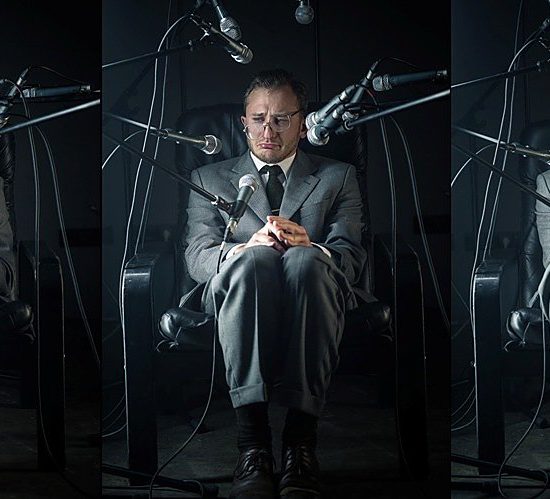Post-mortem of an entertainment theater – OKT “Cleansed”
The era that OKT once bypassed caught up with its children – the young generation of actors who chose this play themselves. And although I’m always a bit nervous when I go to see plays created by young actors, I will steal thunder from other skeptics – no other generation of actors could ever give such a sensitive rendition of “Cleansed”.
The audience is a spit away from the stage. Closely seated, in their chairs the spectators represent the fourth wall – a wall that isn’t inscribed with word fragments, yet bearing imprints of the small, private prisons. From this moment everyone will be left to themselves – merged with the darkness, other people’s pain, blinding lights, and, finally, completely speechless. The lights go off and the cleansing begins.
On the stage, the passion for life competes with the passion for death. Here love slides on the surface of homosexual and incestuous relationships and transgenderism, all this under the watchful eye of the mysterious Dr. Tinker (actor Darius Meškauskas). The curse of the inquisitor is that, despite the terrible interventions, his experiments are limited to the backstage of love, while in reality it remains intact. Just felt. By the characters themselves and the viewers welded to their chairs.
Meanwhile, the pain experienced by the characters cleanses, exposes the depths of the soul and purifies. When you are martyred, stolen from life, but not yet dead, eventually you discover yourself. Yourself and the naked feeling of love, which in fact belongs to nobody. Neither to sex, nor blood ties, nor the individual. At the end of the play we are left with an open question: how can a person love in general? How is love possible when…?
Do not go to see the play if you’re driven by big headlines about the play or its playwright. Here you won’t find her biography. Do not go to see it if you’re driven by the instinct to see violence. Come to have a look at yourself, come to be stupefied, but do not panic – after all, it is not unusual for humans to learn things by way of a scalpel.
****
Toma Stasiukaityte, bernardinai.lt, 5th February 2016



